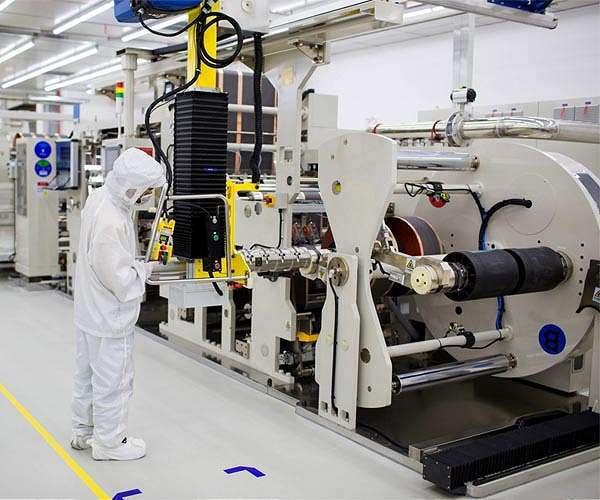Chinese battery giant CATL’s Hong Kong listing plan is gaining momentum
Chinese electric vehicle battery giant CATL is pushing ahead with plans for a Hong Kong stock exchange listing, with banks reportedly vying for a deal expected to raise at least $5 billion.
CATL, which produces more than a third of EV batteries sold globally, said it plans to “seek a listing on the Main Board of the Hong Kong Stock Exchange” in a bid to expand globally and support the energy transition .
“This move is primarily aimed at creating an international financing platform to better support our global business development,” the company told AFP on Tuesday.
“We have sufficient cash and financing for our overall operations, and building an international financing platform will be a strategic arrangement, in line with other globalized companies.”
CATL is publicly traded in Shenzhen and plans for a secondary listing in Hong Kong were announced in a stock exchange filing last month.
Bank of America, JPMorgan Chase, China International Capital Corporation and CSC Financial Corporation are poised to be the lead arrangers for the deal, Bloomberg News reported this week.
Other banks are likely to be added for a listing that could take place as early as the first half of this year, which could raise at least $5 billion, according to Bloomberg.
Founded in 2011 in China’s eastern coastal city of Ningde, CATL has grown into the world’s largest manufacturer of EV batteries, supplying companies such as Mercedes-Benz, BMW, Volkswagen, Toyota, Honda and Hyundai.
Last week, the US Department of Defense added CATL to a list of companies it says have ties to Beijing’s military.
China has denounced the measure as “suppression,” while CATL said the company is “not involved in military activities.”
CATL’s Shenzhen shares rose 3.8 percent on Tuesday, but were still down nearly four percent since the start of the year.
The Hong Kong stock exchange is eyeing the return of big-name Chinese listings, hoping to regain its position as the world’s top IPO venue.
China’s financial hub has seen a steady decline in new supply since Beijing’s crackdown from 2020 led some Chinese mega-corporations to shelve their plans.
A $4 billion bumper listing from Chinese electronics maker Midea last year could signal a turnaround, analysts say.


